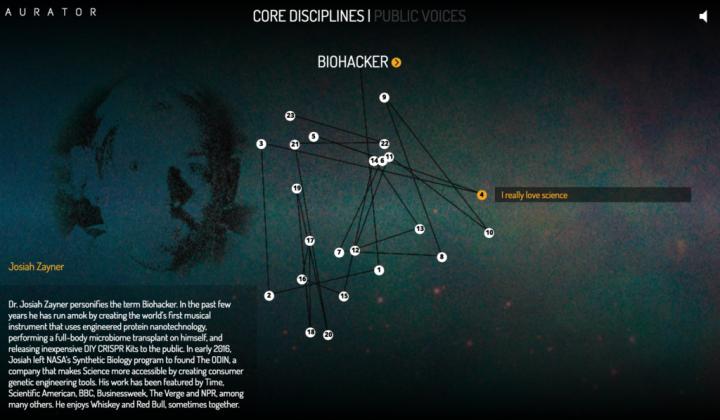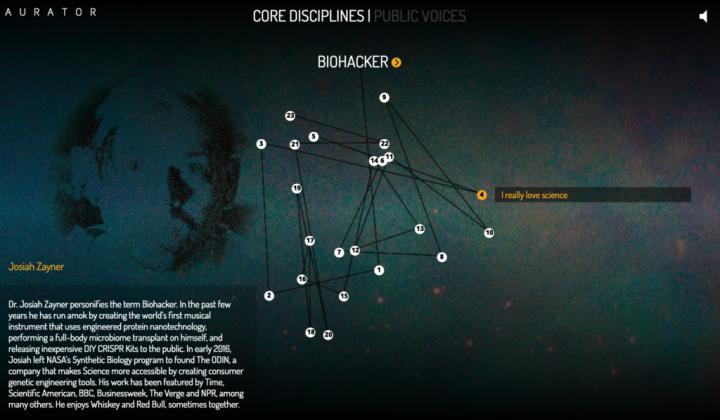
Credit: University of Copenhagen
Science projects within controversial fields such as synthetic biology could benefit from experimenting with communication settings in which experts share their thoughts and feelings with each other and the public. This allows for a more open and constructive dialogue with the public about research – and may even generate new research ideas, a new PhD thesis shows.
Studies have shown that affect and emotion shape the way the public reacts to new scientific ideas and discoveries, particularly controversial ones. But what about the scientists and experts themselves? Do they not have doubts, fears and hopes about their projects that shape the way they think and communicate about their research? This was one of the central questions which science communicator Britt Wray addressed in her PhD project at the University of Copenhagen:
"The field of synthetic biology, which I have studied in this thesis, has often been criticized for an instrumental approach to public engagement that merely aims to gain public acceptance of its practices; but treating science communication as something that is just designed to teach the facts and convince the public of the merits of a particular scientific field may be counter-productive and generate distrust," Britt Wray explains.
In order to study alternative and more open approaches to communicating about synthetic biology, Britt Wray set up the interactive web-based platform AURATOR in which a multi-disciplinary group of experts working within the field could share their thoughts and feelings about their work in the form of weekly audio diaries that also allowed the public to engage with them in an open dialogue.
Before and after a three-month period, Britt Wray conducted interviews with the experts to see how the diary process affected them:
"One of the key findings in the data which the participants' diaries generated is that the science communication produced during the experiment was directly shaped by the affects and emotions that emerged while contributing to AURATOR. This was, for instance, expressed by the ways in which they all grappled with their own roles as communicating experts in the AURATOR: Some were concerned that their reputation among colleagues might suffer from their participation while others actively used the diaries as a therapeutic space where they were allowed to articulate and discuss crazy ideas. One participant directly attributes the diary method as the origin point for three new projects – one of which was a DIY CRISPR kit for amateurs that has become world-renowned," Britt Wray says.
Breaking the mould of the science narrative
Britt Wray emphasises that she is not suggesting that all science communication should be conducted in a similarly experimental fashion, but that universities should at least consider breaking the mould of the traditional science narrative which tends to alienate people rather than engage them:
"At universities, we set up strategies to deal with public outreach to show that we really care about entering into dialogue with the public, but the science communication that we produce primarily aims at convincing the public and does not engage them in the process of scientific exploration. This has made many people wary of science communication from research institutions. The AURATOR experiment shows that playing with the idea of science communication as performance may produce highly interesting results for science communicators and the public alike. And that we should not be afraid of experimenting with different communication formats and settings that genuinely give the public the possibility of engaging in the research process."
###
Britt Wray's PhD thesis is entitled "Listen, why should I care?" Emotion, Affect, and Expert Participation in Public Engagement about Synthetic Biology
Explore the AURATOR platform (https://aurator.org/)
Contact
PhD Britt Wray
University of Copenhagen
Phone: +929 280 6845
E-mail: [email protected]
Media Contact
Britt Wray
[email protected]
929-280-6845
http://humanities.ku.dk
Original Source
https://news.ku.dk/all_news/2018/09/doubts-and-dialogue-may-alter-public-perceptions-of-science/





